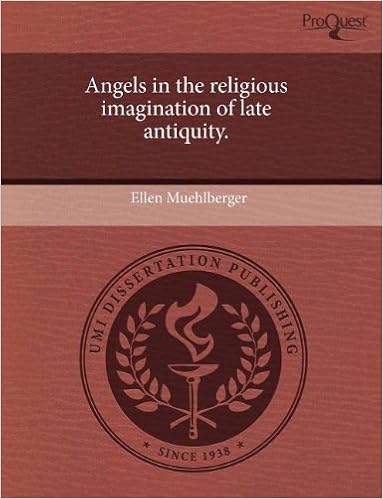
By Ellen Muehlberger
Read or Download Angels in the religious imagination of late antiquity PDF
Similar history_1 books
Gloster Meteor: Britain's Celebrated First Generation Jet by Phil Butler, Tony Buttler PDF
;Gloster Meteor: Britain's Celebrated First new release Jet (Aerofax) ВОЕННАЯ ИСТОРИЯ,ТЕХНИКА Название: Gloster Meteor: Britain's Celebrated First new release Jet (Aerofax)Автор: Phil Butler, Tony ButtlerИздательство: Midland PublishingISBN: 1857802306Год: 2006Страниц: 147Формат: PDF в RARРазмер: seventy one. 13МБЯзык: английскийThis is the 1st ever in-depth historical past of 1 of the main winning British plane of all time, the British Gloster Meteor, whose powerful recognition is evidenced through the hot unencumber of a number of fresh version kits of the kind.
Explains how William Gladstone replied to the 'Irish Question', and in so doing replaced the British and Irish political panorama. faith, land, self-government and nationalism turned matters of in depth political debate, elevating concerns concerning the structure and nationwide id of the entire uk.
- American political ideas viewed from the standpoint of universal history: Three lectures delivered at the Royal institution of Great Britain in May, 1880,
- BAC Lightning F Mk3-Mk6
- Fiat 500 - 1957 to 1973 479cc, 499 cc, 594 cc Owner's Workshop Manual (Haynes Manuals)
- Muqarnas, Volume 24. History and Ideology: Architectural Heritage of the 'Lands of Rum'
Additional info for Angels in the religious imagination of late antiquity
Sample text
48 the Stoic sage—a rare creature—can by judicious use of his rational mind avoid being moved by the passions. This is impossible for a daemon, because the whole of the daemon’s interiority is taken with passivity. Augustine asks with incredulity: Can there be any doubt that, in these words, it is not some inferior part of their souls that is said to be disturbed like a stormy sea by the tempests of the passions, but the very mind in respect of which the demons are said to be rational creatures?
9. 15 Clarke, Dillon, and Hershbell, Iamblichus, xxvi. ”16 To start, he establishes that divine beings are not subject to the same passivity—both ontologically and in a general sense—to which humans are subject. There are four classes of divine beings: gods, daemons, heroes, and pure souls. 18 There are multiple faults of human perception that can skew the ways in which the divine realm is understood. Iamblichus, as “Abamon,” warns against applying to divine beings the same categories that one might apply to animals, such as “rational” and “irrational,” because these dichotomies do not obtain among divine beings.
Theorizing about daemons in a way that likened them to human beings, and to human mutability, ultimately proved to be more damaging than helpful, in part because it suggested that divine beings, while ontologically superior to humans, could be their moral counterparts: reactive and unstable. HUMAN PERCEPTION While Martin locates the intial misstep that endangers the pagan philosophical system at the moment when thinkers begin to admit the possibility of a morally ambivalent daemon, at least one of the writers he treats in Inventing Superstition identifies a different source for the problem.
Angels in the religious imagination of late antiquity by Ellen Muehlberger
by Richard
4.4


